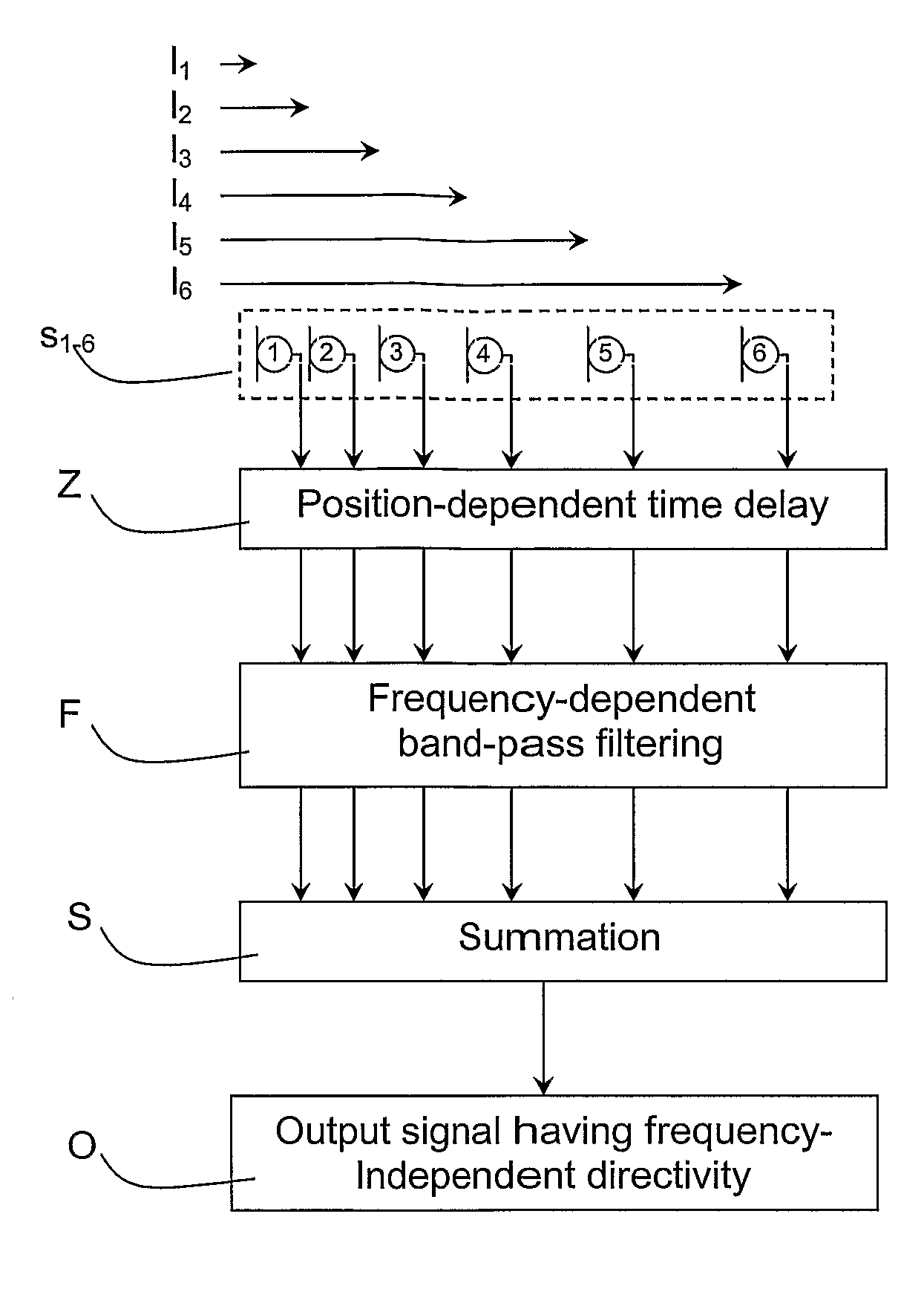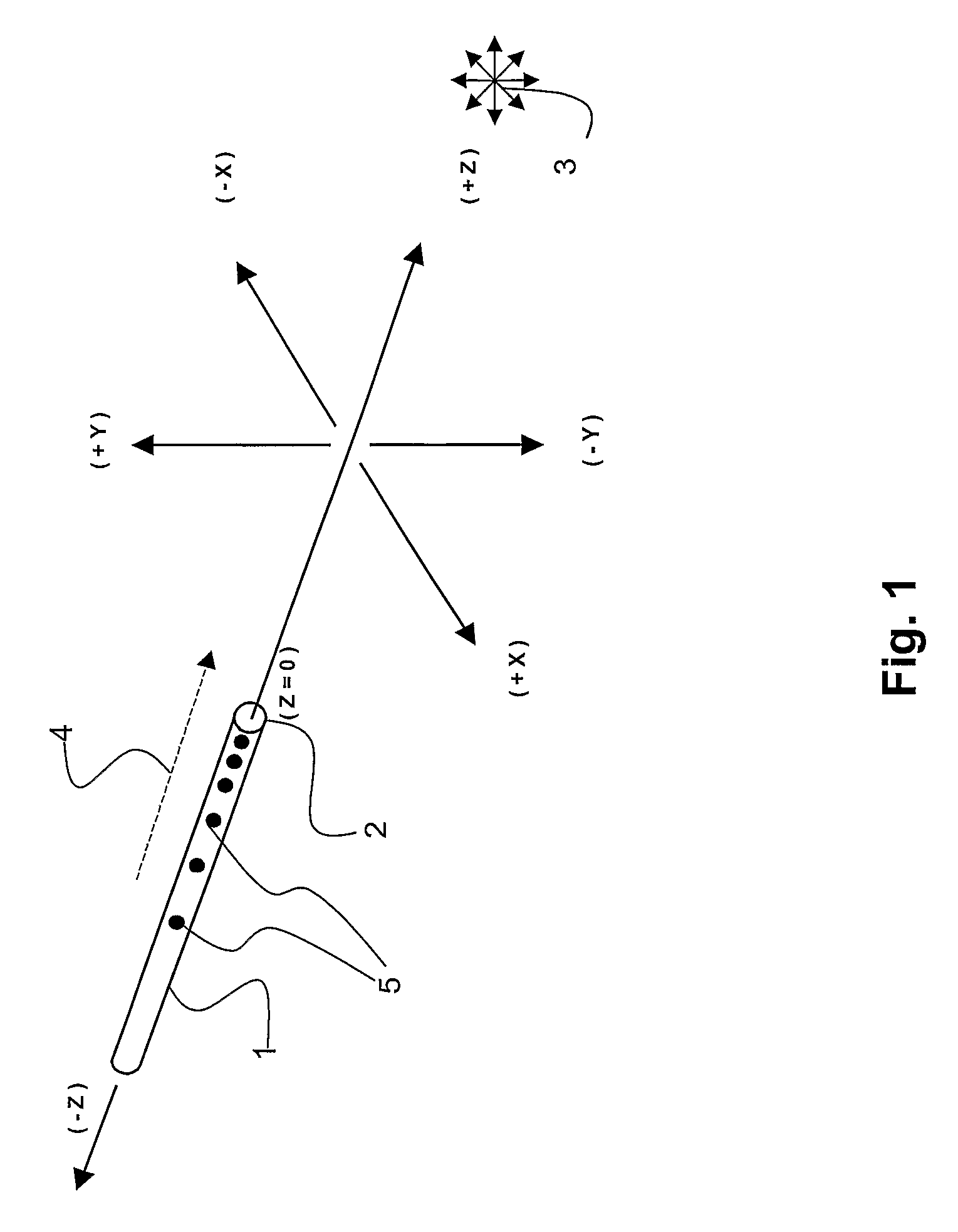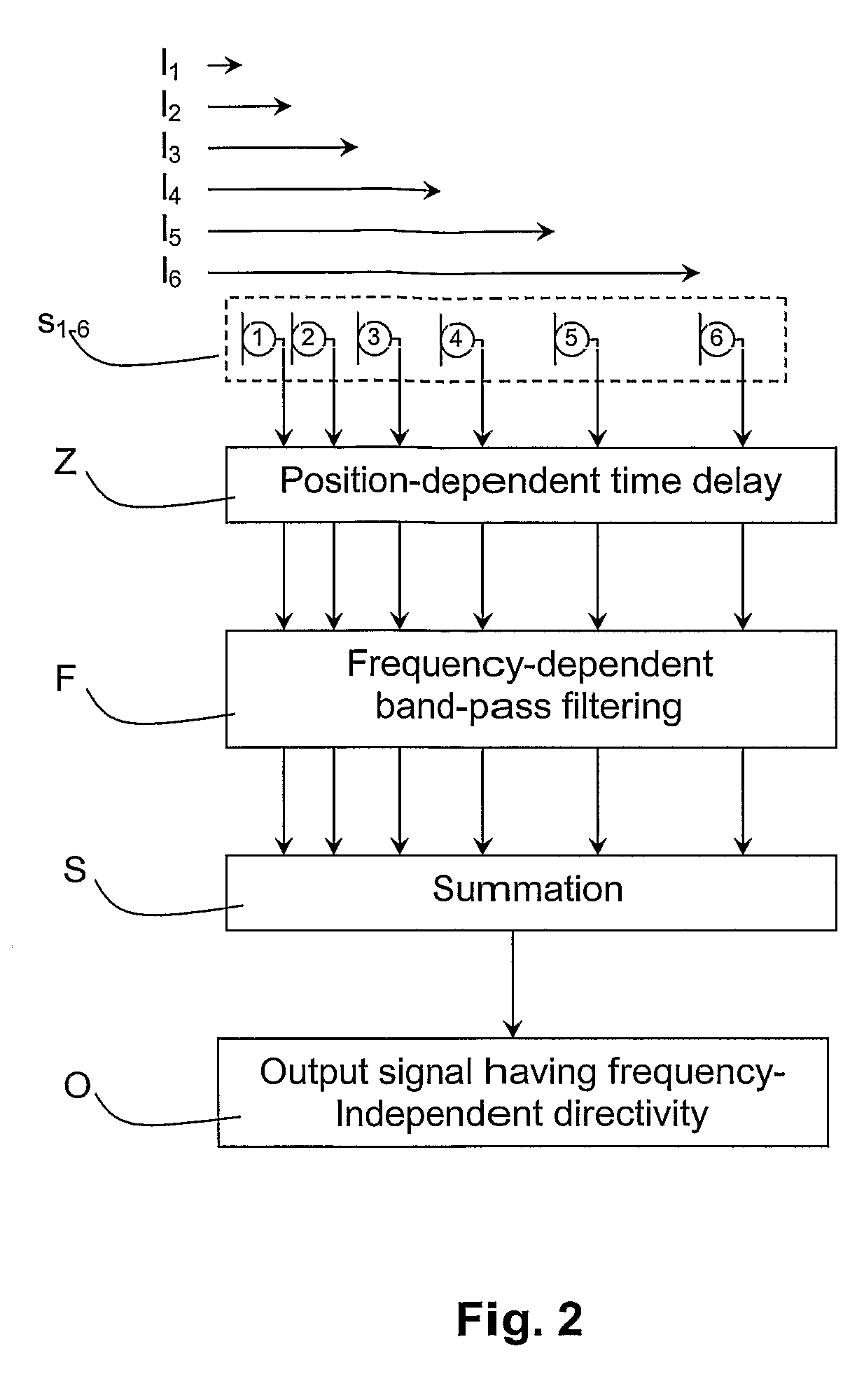Microphone aperture
a microphone and aperture technology, applied in the direction of transducer casings/cabinets/supports, frequency/directivity obtaining arrangements, transducer circuits, etc., can solve the problems of instabilities in frequency-dependent directivity, poor directivity of transducers, and disadvantages of types
- Summary
- Abstract
- Description
- Claims
- Application Information
AI Technical Summary
Benefits of technology
Problems solved by technology
Method used
Image
Examples
Embodiment Construction
[0039]The invention is explained below by way of an example, but it will be understood that the invention is not limited to this example.
[0040]FIG. 1 shows a microphone array 1 having a reference end 2 and a sound source3 as well as a direction towards the sound source 4. An array of this type is often referred to as an “end-fire” microphone. The microphone array shown is a rectilinear element with individual microphones 5 disposed along the longitudinal axis, said microphone being disposed with the smallest spacing in the direction towards the sound source and a wider spacing away from the sound source. Basically, the length of the microphone array is at least as long as the wavelength of the lowest frequency, for which a high directivity is desired. The lowest frequency must be selected with care, as very low frequencies result in long microphone arrays of up to several meters in length. Moreover, at very low frequencies it is also doubtful, how much is achieved by a high directiv...
PUM
 Login to View More
Login to View More Abstract
Description
Claims
Application Information
 Login to View More
Login to View More - R&D
- Intellectual Property
- Life Sciences
- Materials
- Tech Scout
- Unparalleled Data Quality
- Higher Quality Content
- 60% Fewer Hallucinations
Browse by: Latest US Patents, China's latest patents, Technical Efficacy Thesaurus, Application Domain, Technology Topic, Popular Technical Reports.
© 2025 PatSnap. All rights reserved.Legal|Privacy policy|Modern Slavery Act Transparency Statement|Sitemap|About US| Contact US: help@patsnap.com



